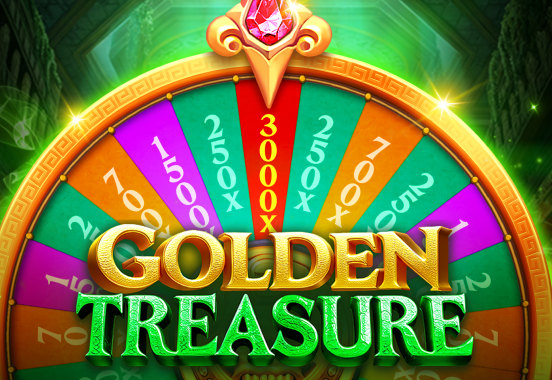tmt play online casino what is the mood of the bet
user taya365 bet
JILI Games - tmt play online casino CASINO Excellence in online gaming
At tmt play online casino online casino, we offer the best slot games to all our players, and out of all the software providers, we chose JILI! In the dynamic and rapidly evolving world of online gaming, few names shine as brightly as jili. Established as a leading software provider, JILI has consistently demonstrated its commitment to pushing the boundaries of entertainment and gaming experiences. With a rich array of products, a penchant for innovation, and a dedication to quality, jili games has secured its place at the forefront of the iGaming industry.

### Understanding the Mood of the Bet: Emotions, Psychology, and Risk Tolerance in Betting
Betting, a practice as old as civilization itself, serves many purposes. From socializing to financial aspirations, people partake in this activity for various reasons. Yet, one of the most profound and multifaceted dimensions of betting is the mood it creates—often a volatile mix of exhilaration, anxiety, hope, and despair. This article delves into the psychological landscape of betting, unraveling the emotional tapestry that accompanies wagers, and exploring the complex interplay between risk, reward, and human sentiment.
#### The Emotional Spectrum of Betting
At its core, betting is an emotional experience. The act of placing a bet triggers a rich array of feelings that can vary widely from person to person and from situation to situation. Generally, we can categorize these moods into a few predominant themes:
1. **Hope and Anticipation
**– The moment someone places a bet, a surge of hope and anticipation envelops them. This emotional state is crucial because it provides a sense of agency and excitement. Betting offers a fleeting glimpse into the future, where successes can seem within reach. The thrill of imagining what a win could bring—financial freedom, prestige, or simply the joy of beating the odds—can elevate a person’s mood.
2. **Euphoria and Exhilaration
**– Winning a bet often leads to an intoxicating high. The euphoria experienced during a victory can be palpable. For many, the joy of victory is compounded by social validation. Winning can enhance self-esteem and create a sense of belonging among peers who share similar interests in betting. This high, however, can be fleeting, often leading to a desire for more bets and more significant risks.
3. **Anxiety and Fear
**– Conversely, the prospect of losing can introduce anxiety and fear into the equation. The higher the stakes, the more intense these feelings become. For some, the worry of losing money can lead to sleepless nights, while others may experience physical manifestations of stress. The fear of not only losing financial resources but also losing status among peers can complicate the emotional landscape of betting.
4. **Despair and Regret
**– When individuals experience a losing streak, feelings of despair and regret can emerge. The emotional fallout from consistent losses can lead to self-doubt, depression, and, in extreme cases, reckless behavior as individuals chase their losses. This emotional spiral is particularly dangerous, reinforcing negative cycles that can lead to problem gambling.
#### The Psychology Behind the Mood of the Bet
The emotions associated with betting are deeply rooted in human psychology. Understanding why people feel the way they do when they gamble involves examining several psychological principles.
1. **The Gambler’s Fallacy
**– Many bettors fall prey to the gambler’s fallacy—the belief that past events influence future outcomes in random scenarios. For example, a bettor might think that a team that has lost several consecutive games is “due” for a win, leading to increased optimism and consequent bets. This cognitive bias can elevate one’s mood until the inevitable disappointment arrives, exacerbating feelings of despair.
2. **The Risk-Reward Paradigm
**– The thrill of risk-taking can be intoxicating. According to behavioral economics, individuals often exhibit risk-seeking behavior in contexts involving potential losses, whereas they may become risk-averse in contexts involving gains. Bettors might chase losses following a series of bad bets, driven by the hope of reclaiming what they’ve lost. This desire often leads to a rollercoaster of emotions, further complicating the mental state surrounding bets.
3. **Emotional Contagion
**– The social environment plays a significant role in shaping the mood of the bet. When betting with friends or in a lively setting, the emotional energy can amplify excitement and tension. Conversely, in a more solitary environment, one might experience loneliness or self-doubt, further complicating emotional responses. The shared experience of betting—whether through cheering for a team or commiserating over losses—creates an emotional bond that can enhance both the highs and lows of the betting experience.
#### Finding Balance: Responsible Gambling and Emotional Awareness
Given the emotional volatility inherent in betting, it becomes crucial for individuals to engage in responsible gambling practices. Being aware of one’s emotions and understanding how they can influence behavior is essential for maintaining control over betting habits.
1. **Set Limits
**– Establishing betting limits can mitigate the emotional fallout from losses and help maintain a sense of groundedness. This approach encourages bettors to make decisions based on rational assessments rather than emotional impulses.
2. **Emotional Regulation Strategies
**– Developing emotional regulation techniques, such as mindfulness and relaxation exercises, can help bettors cope with the stressors that arise from betting. Self-awareness and emotional intelligence can empower bettors to recognize and manage their moods effectively.
3. **Seek Support
**– Whether through formal support groups or informal conversations with friends, sharing experiences and feelings related to betting can help individuals process their emotions in a healthier manner. Open communication can foster a sense of community and understanding.
4. **Reassess Motivations
**– Regularly reflecting on the motivations behind betting—whether for financial gain, entertainment, or social interaction—can help individuals align their betting habits with their overall life goals and mental well-being.
#### Conclusion
The mood of the bet is an intricate blend of emotions that encapsulates the human experience. Understanding the psychological underpinnings of these feelings and being mindful of their impact on behavior can empower individuals to engage in betting responsibly. The journey through the emotional highs and lows of betting can be both thrilling and perilous, making it imperative to cultivate self-awareness and emotional resilience in the face of risk. Ultimately, a balanced approach to betting can turn a potentially destructive endeavor into a source of enjoyment, connection, and personal growth.

To access our platform, simply visit tmt play online casino what is the mood of the bet and create an account. Once registered, you can log in and enjoy all the games and features our platform has to offer.
Join tmt play online casino what is the mood of the bet today and experience the thrill of online gaming like never before!
